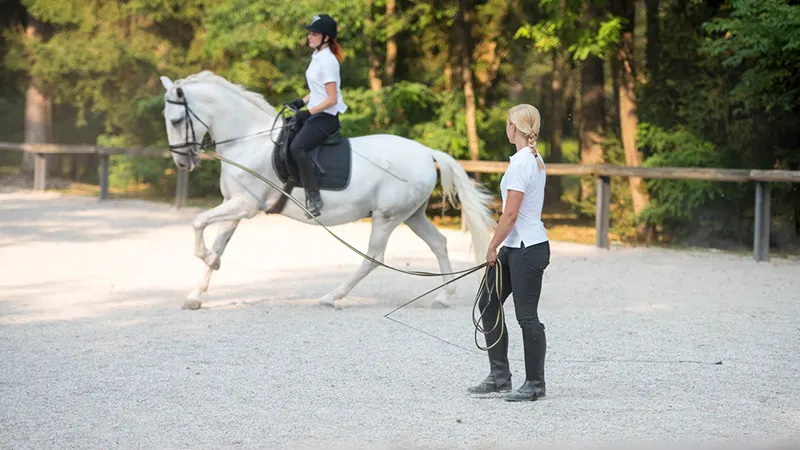The U.S. Equestrian Federation is spearheading an initiative to “coach the coaches” and help riding instructors hone the interpersonal side of their craft needed to most effectively communicate with athletes.
Last month, USEF hosted a pair of events that brought together leaders from various disciplines to meet with experts from the U.S. Center for Coaching Excellence, a national nonprofit “dedicated to elevating and enhancing the profession of sport coaching, coach development and coach education” across the spectrum of athletics, and People Academy, a leadership training organization that has worked with multiple Olympic sports to develop elite coaches.
“Horses is the thing we do, but we actually teach people,” USEF Director of Sport David O’Connor said, talking about the need for improved trainer education in equestrian sports. “People in the horse world get too stuck [in how they were taught]. Most trainers and coaches really come at it just from their personal experience and personality, and there’s so much more coach education and training involved.”

The coaching education initiative has been in idea stages for at least a decade, and O’Connor—an individual Olympic gold medalist and seasoned eventing coach himself—organized the January event with USCCE at USEF headquarters in Kentucky after putting himself through the training. Recent events, like the controversy over Katie Prudent’s teaching methods at a January USEF Horsemastership Training Series clinic, were not a catalyst for launching the initiative, but served to highlight the need for this type of training within horse sports, USEF officials said.
USCCE’s training purposefully brings coaches from different sports together to learn effective techniques—“not the ‘what’ but the ‘how,’ ” as O’Connor put it—that apply to effectively communicating with athletes as people.
ADVERTISEMENT
“The big thing they push is, you try to engage people’s minds, not just their bodies,” O’Connor said, where the coach’s role is to help pull information out of students instead of just pushing it into them, with an eye to tailoring coaching to the person’s age and level of experience. “The training side becomes a dialogue, where you are pulling information out, so you are creating people who are engaged thinkers, planners—not just ‘do this, do that.’ ”
A dozen people came together for the first USCCE training, including leaders from various equestrian sports. Over the next three years, USEF hopes to get all faculty from its breed and discipline affiliates through the training, and then have the affiliates lead efforts to disseminate the information to their member trainers.
The People Academy training, held shortly after the USCCE training, brought team coaches, managers and technical advisors together for leadership training with a focus on effective interpersonal communication. The People Academy has been working with the U.S. Olympic and Paralympic Committee’s National Team Coach Leadership program for a decade, but first was tested within equestrian sport last year when the U.S. Dressage Federation selected 10 aspiring coaches to go through the training.
“Long-term, we’d like if the coaching staff in all of the disciplines would actually be developed here in the U.S.,” O’Connor said. “Could we educate future technical advisors [and] coaches; support and develop that talent early on?”
A commonality between both coaching programs is their proven success in other sports, Olympic and otherwise, he said. “This is how all other sports learn, so why aren’t we?” he said. “You can see there’s a lot of potential to it, at all levels. … It’s a huge benefit to get into a room with coaches from all different sports.
“It puts you on a playing field, learning from other sports: How do we apply this to our world?” he added. “I’m a huge believer in that kind of cross-connection.”






